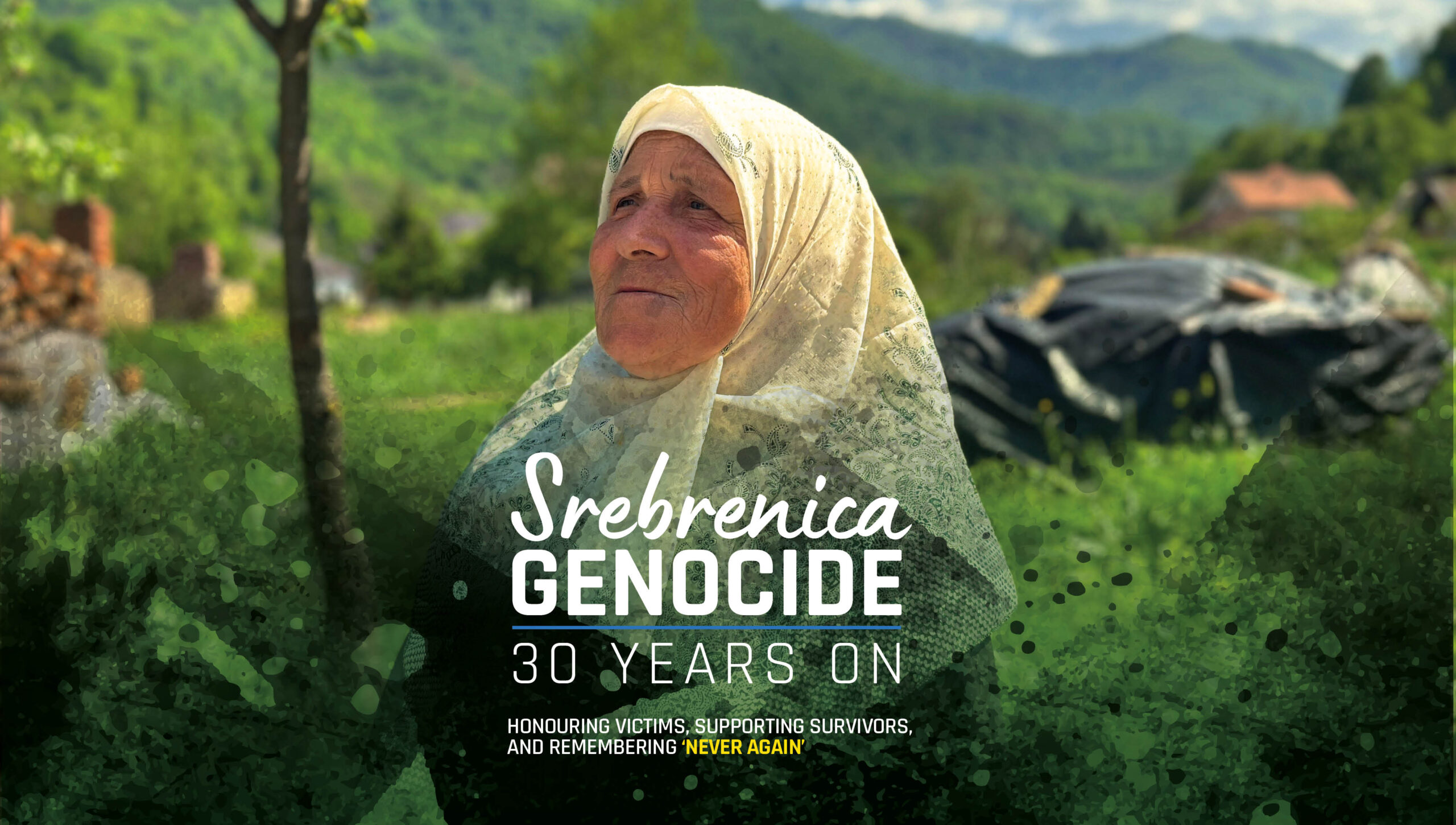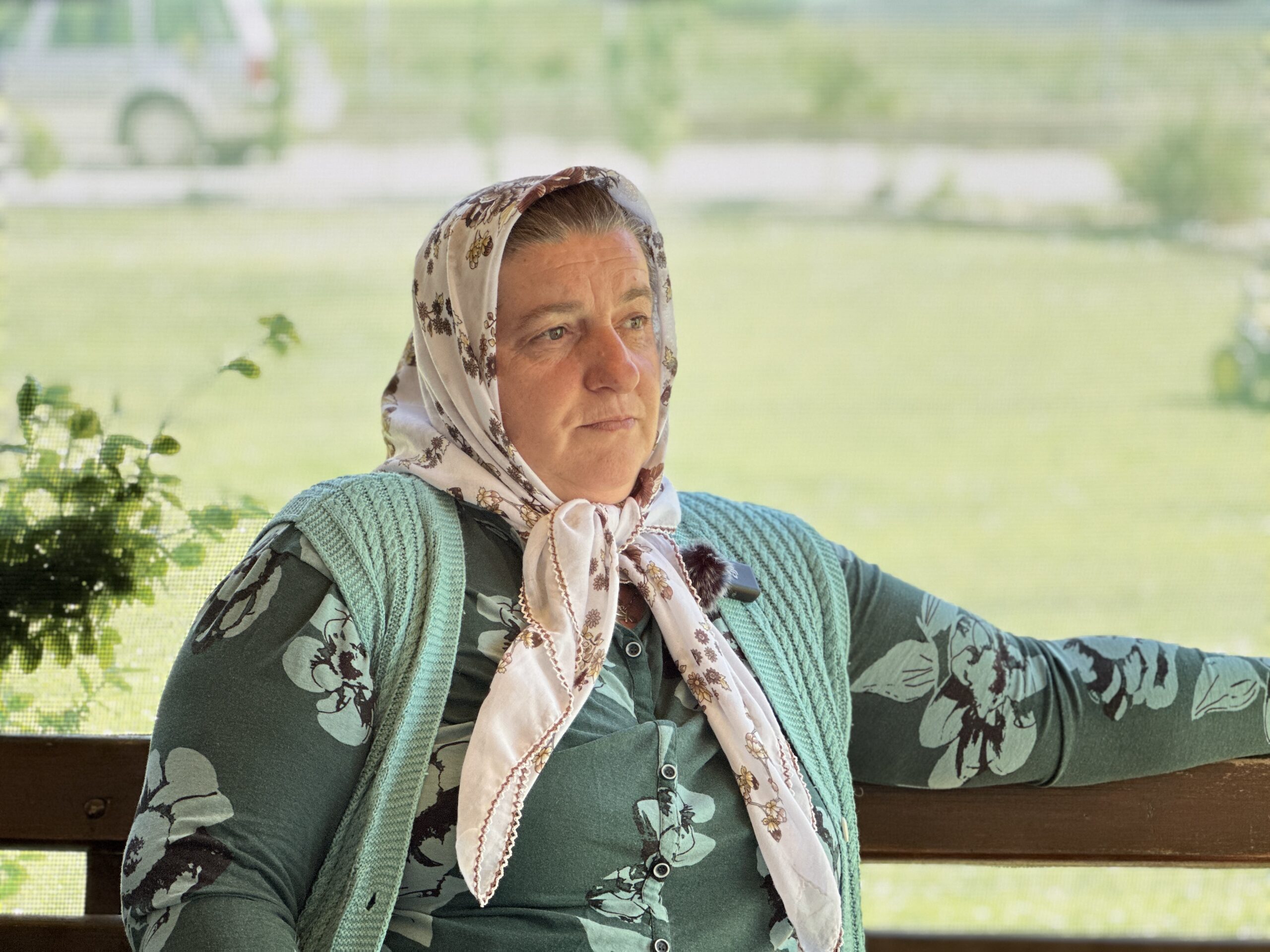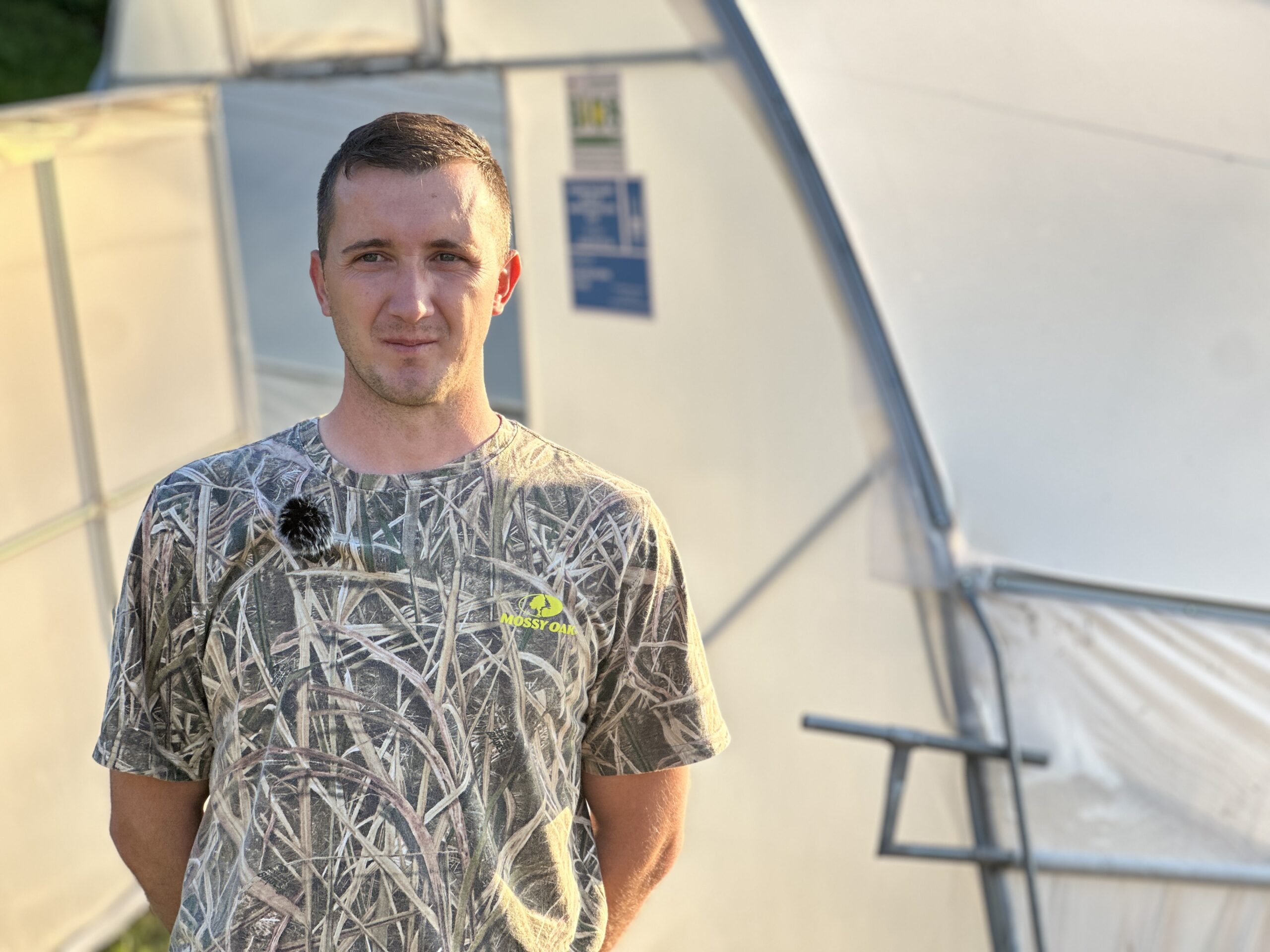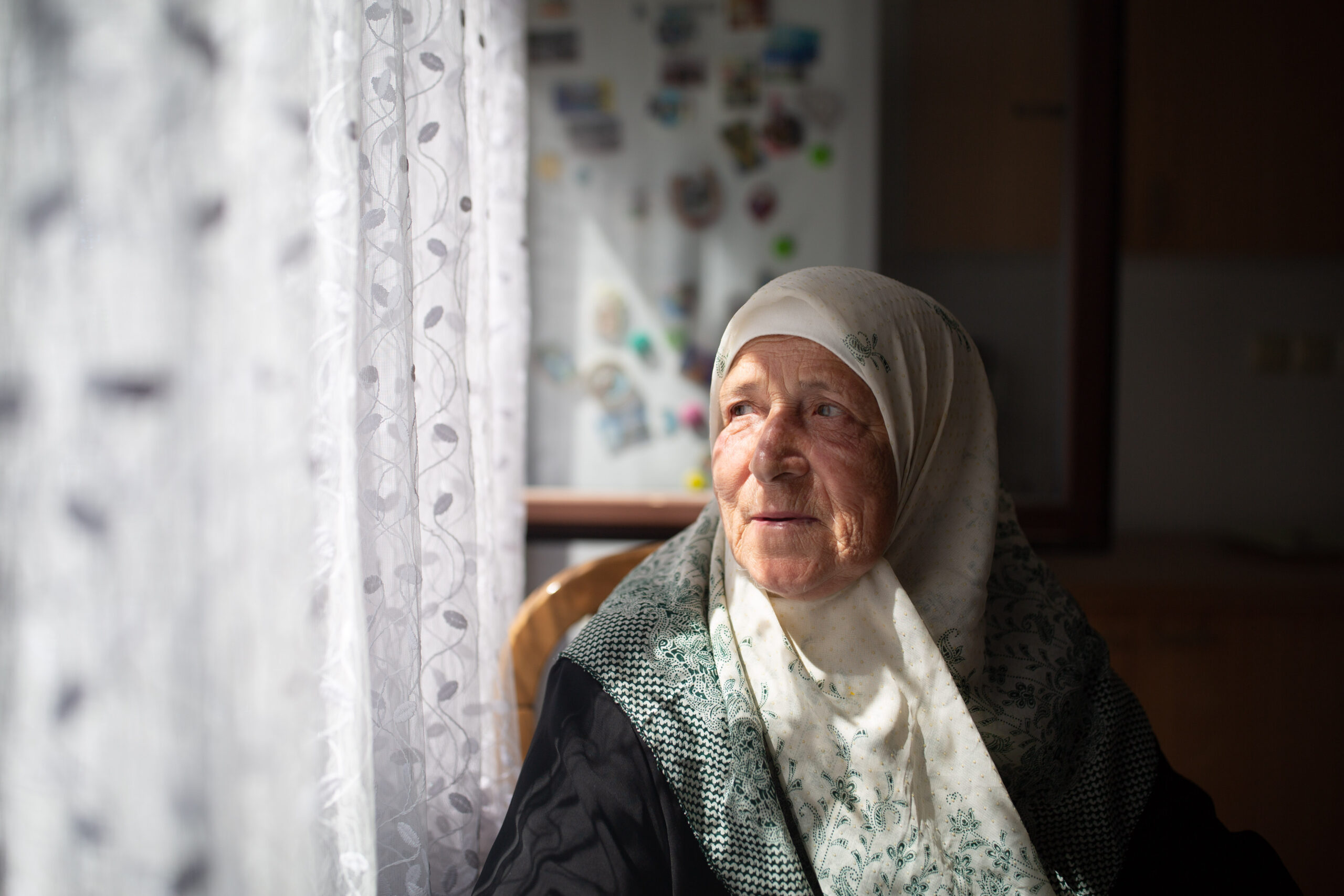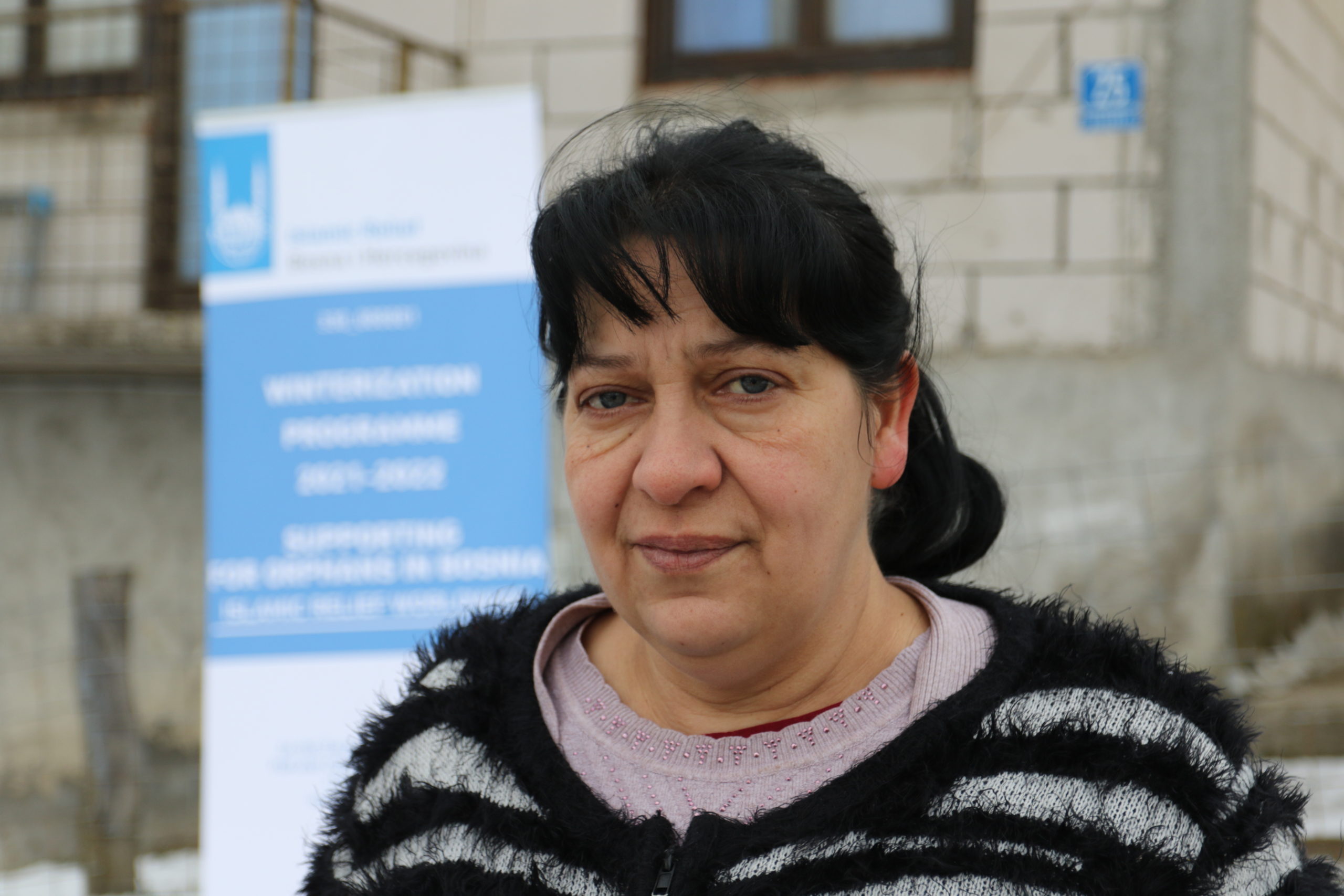
07.08.25
Remembering Srebrenica: Hasan and Adelina’s Story
The trauma of Srebrenica is long-lasting, but Hasan and his daughter, Adelina, are rebuilding their lives.
‘I survived the Death March and found myself again’
“My name is Hasan. I am 65,” says the father-of-2, who lives in a mountainous village in Vlasenica, in what is now Republic of Srpska in Bosnia and Herzegovina. “I was born here. It was good here when I was young.
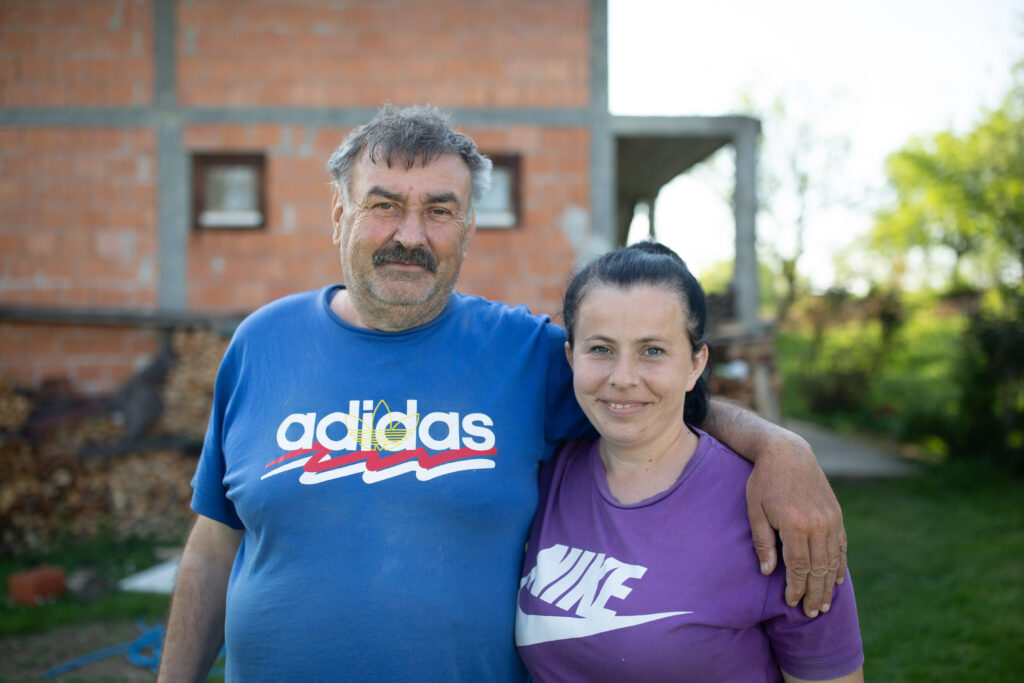
“I went to school, then I worked in a mine. In the 1980s, I joined the Yugoslavian army for 16 months. I didn’t know there would be a war after that. I went to work, and people were talking about how war would come soon, but I didn’t believe it.”
War broke out in 1992, and when it reached Hasan’s village, he was totally unprepared.
“I was living with my father and stepmother, and little siblings. Our neighbours attacked us. I was like a rabbit in the woods: I didn’t have any means to defend myself and my family. Everything was destroyed and burned down.”
Terrified, Hasan and his family fled, hoping to find safety in a small town where they had relatives.
“We walked with other families through the forest. I was going to Cerska, to safe territory. I was a member of territorial defence [a reserve force, or civilian home guard]. We held the line [in Cerska] for about a year. As Cerska fell, I fled to Srebrenica.”
The United Nations had declared Srebrenica a ‘safe area’, prompting thousands of refugees expelled from surrounding towns and villages to seek shelter there. Living in Srebrenica, Hasan found some joy amid the miseries of war, but this proved short-lived.
“I got married. My daughter was born on 1 July 1995, so she was about 6 days old when they started shelling Srebrenica,” Hasan says, recalling the start of the genocide that would shock the world.
Fleeing through the forests
As the horror unfolded, Hasan joined around 15,000 men and boys taking to the forests in a bid to escape the Bosnian Serb Army. The column of Bosniaks hoped to reach safety in the free territory of Tuzla, over 60 miles (around 100 kilometres) away. With mountains, rivers, and even minefields to pass, it would be a perilous journey even without being relentlessly hunted by soldiers. Most of the men and boys would be captured and killed, and the others would spend months trapped in the forest.
“I knew the local area very well and this helped me a lot during the war. I also helped around 20 people to escape, the group of people that I walked with. They only had some weapons for hunting – it is much easier when you have some weapons, you feel safer. There was a very tall guy who carried a piece of wood. I helped them to get better organised.”
Hasan’s recollection of his time in the forest is as a nightmarish haze of fear and suffering, fragmented by trauma.
“[Our journey] lasted for 3 or 4 nights, more than 100 kilometres. The artillery was beating us, and projectiles were literally smashing people’s bodies. A guy had a hallucination, and suddenly he started shooting.” Hasan remembers – hallucinogenic gas was among the weapons the soldiers used against the fleeing men and boys.
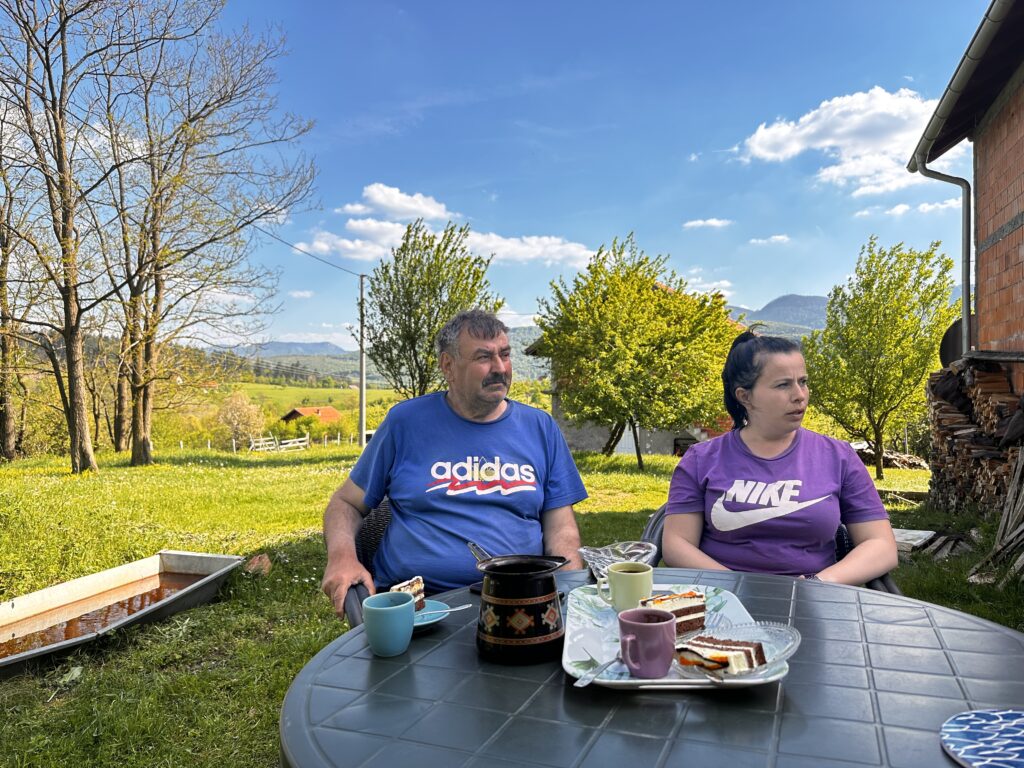
Surviving the Death March
Aided by Hasan’s local knowledge, his group were among only around 3,500 of the column of men and boys to made it to Tuzla. Against the odds, they had survived what later became known as the Death March. Hasan reunited with his wife and child, and in time had another daughter, Adelina, who sits patiently by his side as he describes the long-lasting effects of trauma.
“It is like you collect highlights from a movie. Some things you just cannot remember. Even today, I feel the consequences. Sometimes I talk in my sleep. This is all because of the stress I had, sometimes I feel like somebody is chasing me.
“It affected me, of course, but somehow, I found myself again. It is normal, any living being would be affected by that.”
Rebuilding in the aftermath of war
Born after the war, Adelina, 28, has only ever known peace, but she understands very well the enduring legacy of conflict.
“The war affected a lot of people… they have trauma. My dad has a lot of trauma from the war,” she says.
“After the war, we were refugees. We came here in 2004,” Adelina continues, using the Bosnian word, izbjeglice, which is used interchangeably to describe people forced to flee the country, or to elsewhere in Bosnia. She was a young child when the family moved to Vlasenica, where her father lived before the war, and the early years were not easy.
“We didn’t have a house, so we built one from wood. In 2005, we got a donation to build our house,” she says, gesturing to the two-floored brick building she shares with her father.
“At the beginning, it was very difficult. Others look at you very strangely because you are a Muslim, because you have a strange name. I didn’t like my name when I was little, but later on I figured out that my name is so beautiful. Sometimes I was bullied at school because I was Muslim and Bosnian, but later it was better.”
Forging a future with Islamic Relief
“My mother died 3 years ago. I have only one sister – she is married with 3 children and lives in Switzerland. Sometimes my sister would send us money… it was difficult [to make ends meet].”
Growing up, Adelina dreamed of following in her father’s footsteps by serving in the army.
“In 2016, I finished school. I wanted to become a soldier, but I didn’t pass the tests required. Since I was little, I wanted to be a soldier or a police officer, but I became neither of them. How unexpected life is: today I have… become a businesswoman,” she shrugs, smiling, recalling how Islamic Relief helped her start a small enterprise.
Adelina’s business began through an Islamic Relief project that was part of our decades-long program of support for vulnerable people in Bosnia, especially returnees and survivors of the Bosnian War and Srebrenica Genocide. Adelina received livestock and training on agricultural productivity, developing marketable products, and marketing skills.
“[Now] I have quails and I sell their eggs at the market in the city. We also produce vegetables here, and we have sheep, and we sell lambs to make money.”
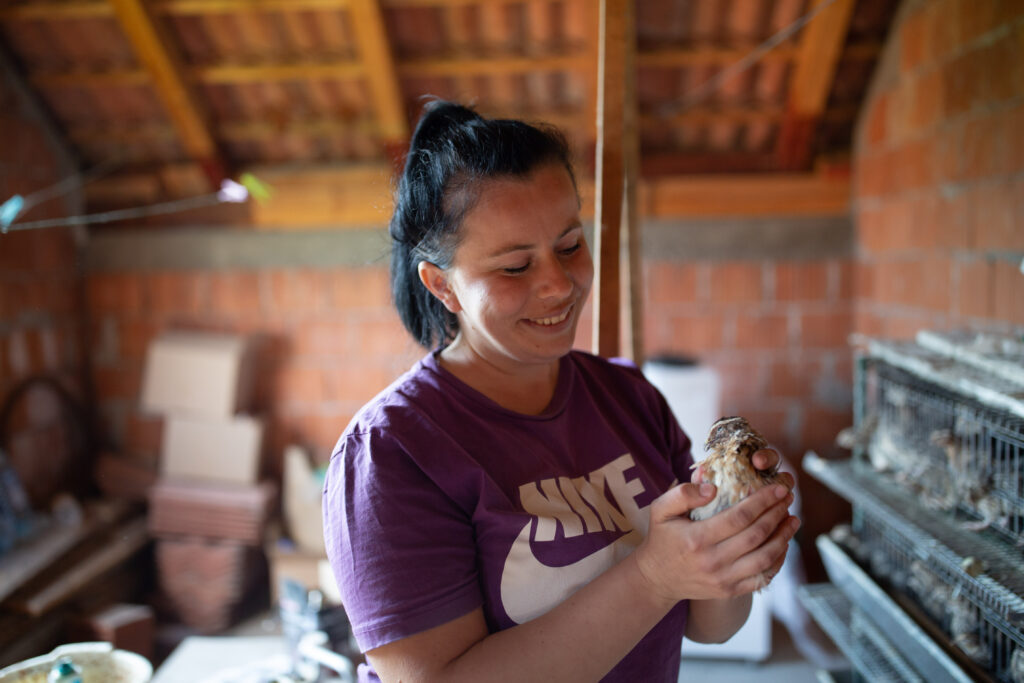
Nurturing livelihoods and optimism
As well as growing the household income, Adelina has found that the project has helped in other, unexpected ways.
“Life has changed a lot [since getting involved in the Islamic Relief project]. I am not an outgoing woman, but I met a lot of people and got better at communicating with people,” she explains. Proudly showing the small birds that are helping her and Hasan look forward to the future, she adds, “They are so small and sweet – and scary! I am a beginner – every start is difficult, but I’m optimistic.”

